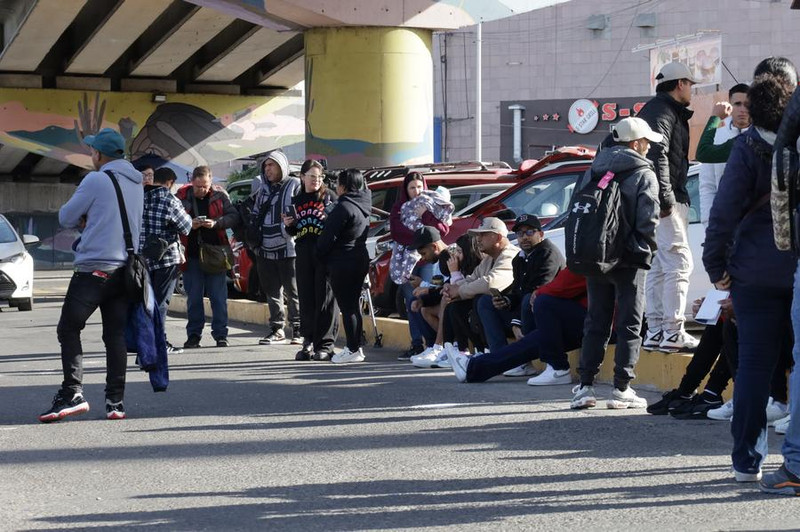According to observers, this tough action will have many consequences, raising humanitarian concerns and negatively impacting the region’s economy.
Shortly after Trump took office, the US administration arrested and deported thousands of illegal immigrants. White House spokesperson Karoline Leavitt described this as the “largest deportation operation in history” and demonstrated the administration’s effort to fulfil its commitments.
On 4 February, the US conducted its first flights carrying illegal immigrants to the Guantanamo military base in Cuba, where Trump believes up to 30,000 deported immigrants can be detained.
Immigration has long been a persistent, thorny issue in the region. Trump’s tough measures have once again brought the immigration issue to the fore, igniting disputes between the US and other nations. Specifically, relations between the US and Colombia became so tense that both countries threatened to impose tariffs on each other after Colombia banned US deportation flights from landing in Colombia. Fortunately, both sides temporarily avoided a trade war by reaching a consensus on immigration.
Another country in the region, Brazil, also expressed dissatisfaction with the US’s large-scale deportation plan. The Brazilian Foreign Ministry summoned a senior US diplomat to discuss the deportation of Brazilian migrants.
With his “America First” policy, President Trump had pledged to crack down on illegal border crossings into the US - which he sees as a threat to national security and the economy. The fear of arrest and deportation at any time is therefore haunting millions of immigrants in the US. Trump’s resolute immigration policy has also sparked mixed reactions.
Supporters argue this is necessary to protect national security, but many are concerned about potential human rights violations and the creation of a humanitarian crisis, especially as Trump decided to open a massive detention facility in Guantanamo Bay, primarily known as a detention centre for those accused of terrorism-related crimes.
The tough immigration policy is also said to have profound effects on the US economy. According to the US Bureau of Labor Statistics, immigrants comprise about 17% of the US workforce. Therefore, deporting illegal immigrants will certainly cause labour shortages across industries, particularly in agriculture. According to US media, officials estimate that about 42% of crop workers in the country are undocumented immigrants.
The cost of deporting illegal immigrants alone is a major issue. According to research by the non-profit American Immigration Council, the mass deportation of undocumented immigrants could cost around 315 billion USD. This would be a significant financial burden for the US government, given the already high level of public debt.
This new immigration policy not only affects the US economy but also has major implications for the security and economics of developing countries across the region. The economies of Central and South American countries heavily depend on remittances from migrant workers. The deportation policy has also created a reverse migration wave back to countries of origin, causing difficulties for countries like Mexico and Guatemala.
Immigration isn’t just an American issue but a common concern for countries throughout the region. Reality shows that comprehensive, sustainable and humane solutions addressing the root causes of immigration cannot come from fortified border walls or aggressive crackdowns and deportations of illegal immigrants, but rather from improving the quality of life in countries where migration waves originate.
















